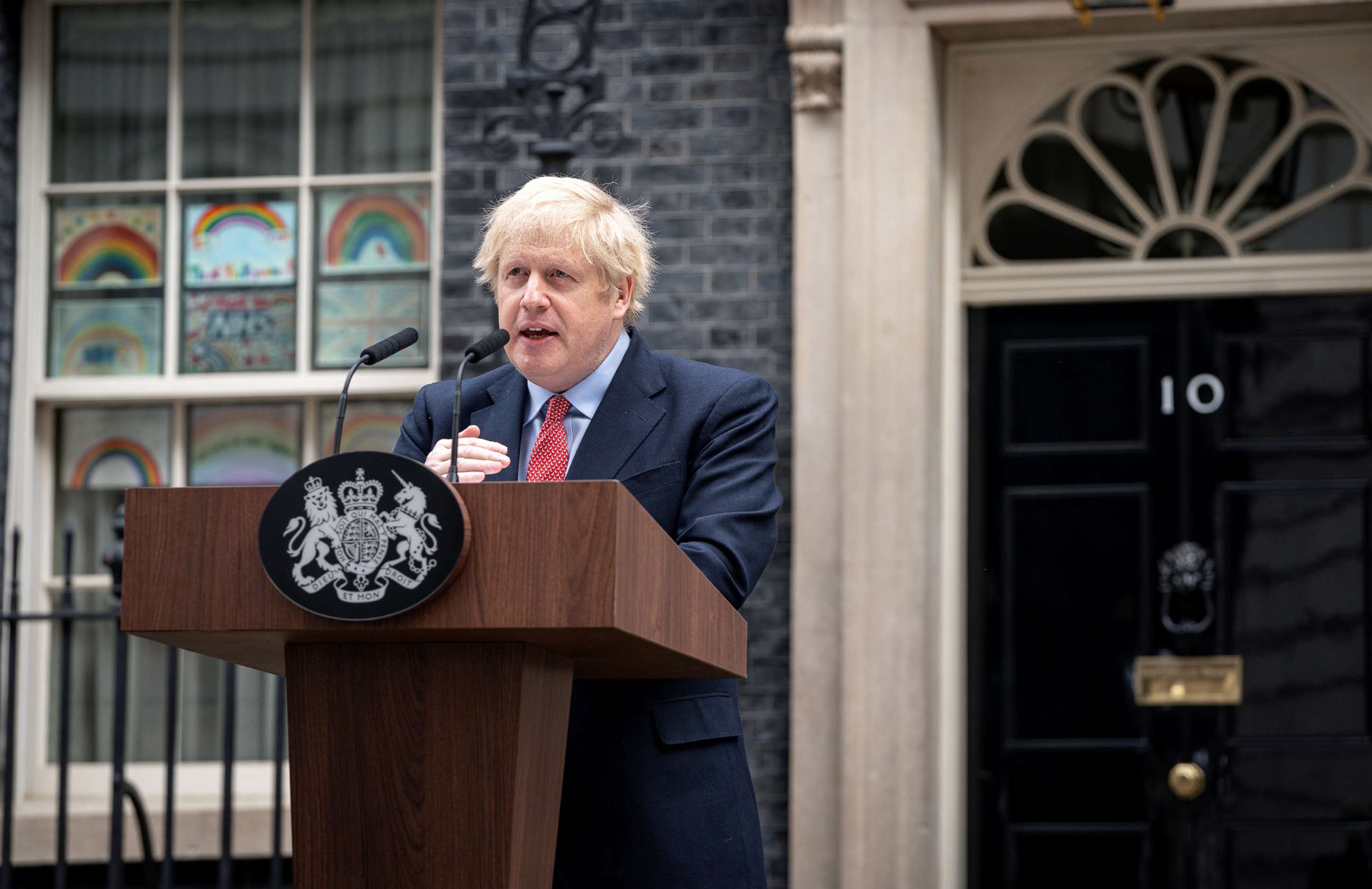UK Prime Minister Boris Johnson returns to work after coronavirus hospitalization, but warns that this is the 'moment of maximum risk'
The prime minister spent three nights in the ICU earlier this month.
LONDON -- The U.K. Prime Minister Boris Johnson returned to work on Monday morning, completing his recovery after he was hospitalised for coronavirus and spent three nights in the ICU earlier this month.
Striking an upbeat tone, the prime minister said the U.K. was beginning to "turn the tide" on the virus in his first public statement since he was admitted to St Thomas’s Hospital in London on April 5. In the address, made from outside Number 10 Downing Street, Johnson praised the British public for the sacrifices they had made during the period of lockdown, but warned that this was the “moment of maximum risk.”
“I understand your impatience, I share your anxiety,” he said. “And yet we must also recognize the risk of a second spike, the risk of losing control of that virus and letting the reproduction rate go back over one. Because that would mean not only a new wave of death and disease but also an economic disaster, and we would be forced once again to slam on the brakes across the whole country and the whole economy.”

Johnson’s remarks were seemingly addressed to quell speculation that the U.K. might look to lifting some of the lockdown measures currently in place in the coming weeks, as the government has faced heavy criticism for its handling of the coronavirus in his absence.
During his recovery, the government has been led by the First Secretary of State Dominic Raab, whom Johnson thanked during his speech. Although Johnson said the rate of transmission in the country had now been brought below one, a crucial step in slowing the spread of the virus, the government has come under intense scrutiny for their handling of the crisis from the media and opposition lawmakers in recent weeks.
The leader of the opposition Labour Party, Sir Keir Starmer, has led the criticism of Johnson’s government over such issues as the rate of testing, the availability of Personal Protective Equipment for frontline National Health Service staff, and a lack of transparency over plans for what will come next.
Starmer penned a letter to the prime minister raising all of these issues over the weekend, suggesting that lockdown measures should have been introduced earlier.
“I fear we are falling behind the rest of the world,” Starmer wrote. “Decisions need to be taken quicker and communication with the public needs to be better.”
What to know about Coronavirus:
- How it started and how to protect yourself: Coronavirus explained
- What to do if you have symptoms: Coronavirus symptoms
- Tracking the spread in the US and Worldwide: Coronavirus map
Despite that, Johnson was defiant in his speech on Monday morning.
“If we can show the same spirit of unity and determination as we have all shown in the past six weeks then I have absolutely no doubt that we will beat it together, we will come through this all the faster and the United Kingdom will emerge stronger than ever before,” he said.
There have been 154,037 confirmed cases of the novel coronavirus in the U.K., and 20,732 officially recorded deaths, making it the fourth worst hit country in the world, according to the latest data compiled by Johns Hopkins University.




